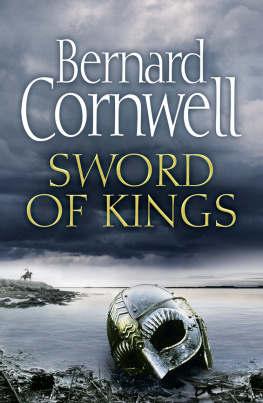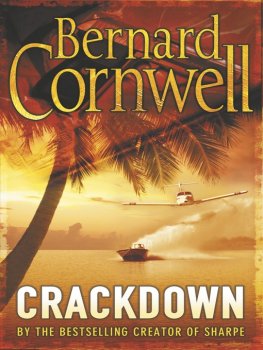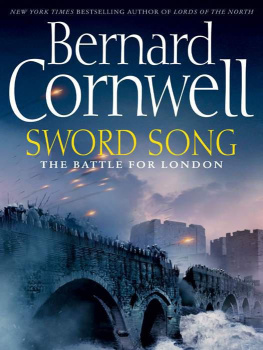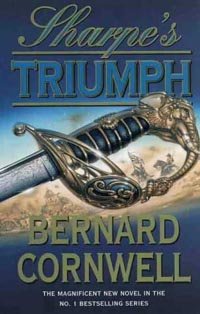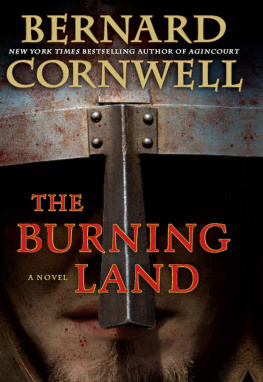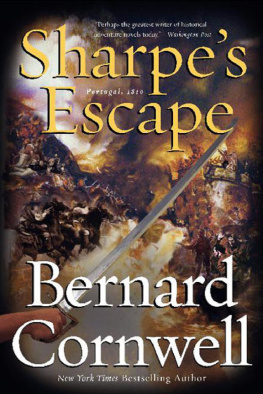Bernard Cornwell - Sharpes Skirmish: A Story
Here you can read online Bernard Cornwell - Sharpes Skirmish: A Story full text of the book (entire story) in english for free. Download pdf and epub, get meaning, cover and reviews about this ebook. year: 2002, publisher: Sharpe Appreciation Society, genre: Adventure. Description of the work, (preface) as well as reviews are available. Best literature library LitArk.com created for fans of good reading and offers a wide selection of genres:
Romance novel
Science fiction
Adventure
Detective
Science
History
Home and family
Prose
Art
Politics
Computer
Non-fiction
Religion
Business
Children
Humor
Choose a favorite category and find really read worthwhile books. Enjoy immersion in the world of imagination, feel the emotions of the characters or learn something new for yourself, make an fascinating discovery.

- Book:Sharpes Skirmish: A Story
- Author:
- Publisher:Sharpe Appreciation Society
- Genre:
- Year:2002
- Rating:5 / 5
- Favourites:Add to favourites
- Your mark:
- 100
- 1
- 2
- 3
- 4
- 5
Sharpes Skirmish: A Story: summary, description and annotation
We offer to read an annotation, description, summary or preface (depends on what the author of the book "Sharpes Skirmish: A Story" wrote himself). If you haven't found the necessary information about the book — write in the comments, we will try to find it.
Sharpes Skirmish: A Story — read online for free the complete book (whole text) full work
Below is the text of the book, divided by pages. System saving the place of the last page read, allows you to conveniently read the book "Sharpes Skirmish: A Story" online for free, without having to search again every time where you left off. Put a bookmark, and you can go to the page where you finished reading at any time.
Font size:
Interval:
Bookmark:

Coyright

By BERNARD CORNWELL.
"Welcome to San Miguel, Captain," Major Lucius Tubbs said to the officer beside him, "where God is in his heaven and all is well with the world."
"Amen to that," said Sergeant Patrick Harper, standing behind the two officers who both ignored him. Major Tubbs, befitting his name, was a plump man with a cheerful, jowly face who now stood at the ramparts of the small fortress of San Miguel and bounced his hands on the parapet in time to some imaginary music. Next to him, and towering over the shorter Tubbs, was a lean and scarred man in a green Rifleman's jacket that was so patched with common brown cloth that from a distance it looked like a farm-labourer's coat. Beneath the patched coat he wore a pair of leather-trimmed cavalry overalls that had once belonged to a colonel of Napoleon's Imperial Guard, and at his side there hung a heavy-bladed cavalry sword that had killed the colonel.
"We shall not be disturbed here, Sharpe," Tubbs said.
"Pleased to hear that, sir."
"The French are gone!" Tubbs waved a hand which suggested the French had simply evaporated. "We shall do our work in these Elysian fields!" Sharpe had no idea what an Elysian field was, and had no intention of asking, but it was plainly a pleasant sort of place for the landscape beyond the river was gentle, peaceful and bathed in Spanish sunlight. "There is just you and I," Tubbs went on enthusiastically, "our splendid men, and enough wine in the store room to float a frigate."
"Amen to that, too," Sergeant Harper said.
Sharpe turned on him. "Sergeant? Take three reliable men and break every damned bottle."
"Sharpe!" Tubbs remonstrated, staring at the rifleman as though he could not believe his ears. "Break the bottles?"
Sharpe looked down into Tubbs's eyes. "The Crapauds may have gone, sir, but the war ain't won yet. And if a troop of monsewers were to come down that road," he pointed south along the road which led from the bridge that the small fortress guarded, "then you and I don't want to be relying on a pack of piss-eyed Riflemen who are so damned drunk that they won't be able to load a rifle, let alone fire one."
Tubbs looked southwards, seeing nothing but unharvested fields, groves of olives, vineyards, white farmhouses and bright red poppies. "But there are no Frenchmen!" The major protested.
"Not a one, sir," Harper valiantly backed up the major.
"They're always damned frogs, sir," Sharpe insisted. "It won't be till we've cleared the bloody earth of the last bloody one that you can claim there are no frogs."
"But breaking the bottles, Sharpe!" Tubbs said reprovingly. "It's good wine, very good wine, and doubtless private property. Have you thought of that?" The major frowned at Sharpe, and then, seeing he had not persuaded the rifleman, tried another approach. "Why don't we just leave the door locked, eh?"
Sharpe sighed. "There ain't one of my men, sir, and I dare say there ain't one of yours for that matter, what can't get through that padlock in half a minute. Sergeant!"
"Sir!"
"Fetch the bottles from the store-room and break them on the bridge."
Sharpe ordered. The fort's store-room was slightly below ground level, and stone-flagged, and Sharpe did not want it flooded with wine, for his men would get down on hands and knees to lap it up. "Now!"
Tubbs sighed, but he dared not countermand the order. He was a Commissary of the Storekeeper of the Ordnance, and though he wore a blue-coated uniform that was generously decorated with silver braid, and though he was accorded the courtesy rank of Major, he was a civilian. His job was to help keep the army supplied with muskets, powder and shot, and Lucius Tubbs had never seen a battle, while the dark-haired, much scarred man beside him had lived through too many. Captain Richard Sharpe had once been Private Richard Sharpe, and he had made the leap from ranks to officer's mess because he was good, frighteningly good, and Tubbs, though he would never have admitted it, was more frightened of Captain Sharpe than he was of the French.
"Sergeant?" Tubbs called after Harper who was reluctantly going down the steps from the firestep. "We might save a few bottles, perhaps? For medicinal reasons?" Tubbs made the suggestion nervously, glancing at Sharpe. "Does not the good book entreat us to 'take a little wine for thy stomach's sake'?" Tubbs pleaded.
"Two dozen bottles in my room, Sergeant," Sharpe said, "for my tummy's sake."
"Two dozen it is, sir," Harper said and went on down the stairs.
"Only two dozen?" Tubbs pleaded.
"When it comes to bottles of liquor, Major," Sharpe said, "Sergeant Harper can't count. There'll be six dozen in my room, and as many again hid somewhere else, but if I don't make a point of breaking the rest then the boys will think this is a public house. It ain't. We've got work to do."
Or rather Major Tubbs had work, and to do it he had three Spanish labourers and one Scotsman, MacKeon, who was a Foreman of the Ordnance, which meant that MacKeon would do the work and Tubbs would take the credit for it, for that was the way of the world. Not that much credit would ensue from MacKeon's efforts, but in their small way they would help win the war against the French who, a month before, had been whipped at Salamanca. Arthur Wellesley, now the Viscount Wellington of Talavera, had bamboozled them, dazzled them, unbalanced them and then half destroyed them. So the frogs had gone. They had marched north with their tails between their legs, and the French garrison of the tiny riverside fort of San Miguel had run with them, but they had left behind, locked in the fort's store-room, close to five thousand muskets.
The priest of San Miguel de Tormes had discovered the muskets after the French left, and he remembered the supply convoy that had brought them.
The weapons were supposed to travel further south, to Soult's army, but the cavalry regiment which should have escorted the convoy across the Sierra de Gredos had never turned up and then, in the manner of armies, the weapons were forgotten and the garrison commander had put them in the store-room where the priest had discovered them. The priest had also found the wine, which was locked away with the guns, and, being an honest man, he had padlocked the store-room again and sent word to the British, and now Major Tubbs had arrived to take possession of the muskets. His job was to make sure the guns were all serviceable, after which they would be cleaned, oiled and given to the guerilleros who harassed and ambushed and terrified the French forces who had occupied Spain. Sharpe, and his Light Company of the South Essex, were charged with the duty of guarding Tubbs's men while they did their work.
But guard Tubbs's men against what? Sharpe doubted there was a Frenchman within a hundred miles of this bridge across the River Tormes. Marmont, beaten at Salamanca, was retreating northwards, while Marshal Soult was pinned south of the River Guadiana by General Hill. In truth, Sharpe thought, the two officers and fifty three men of his Light Company could drink wine from now until MacKeon finished his work and it would make no difference, but Sharpe had not stayed alive by complacency. The frogs might have been defeated at Salamanca, but they were not yet beaten.
He ran down the stairs of the fort, crossed the courtyard and walked out of the gate onto the bridge where Patrick Harper and three riflemen had just begun the melancholy task of smashing the wine bottles. The Light Company, resting on the bridge, was protesting the destruction and, though the louder voices ceased as soon as Sharpe appeared, the company still let him know their feelings by thumping the butts of their rifles and muskets on the stones of the roadway. "Lieutenant Price!" Sharpe called.
Font size:
Interval:
Bookmark:
Similar books «Sharpes Skirmish: A Story»
Look at similar books to Sharpes Skirmish: A Story. We have selected literature similar in name and meaning in the hope of providing readers with more options to find new, interesting, not yet read works.
Discussion, reviews of the book Sharpes Skirmish: A Story and just readers' own opinions. Leave your comments, write what you think about the work, its meaning or the main characters. Specify what exactly you liked and what you didn't like, and why you think so.

